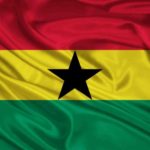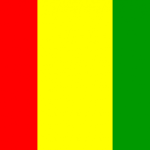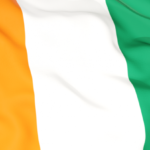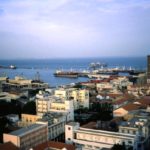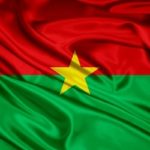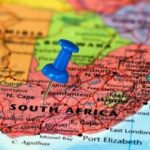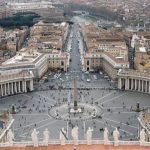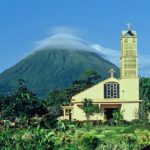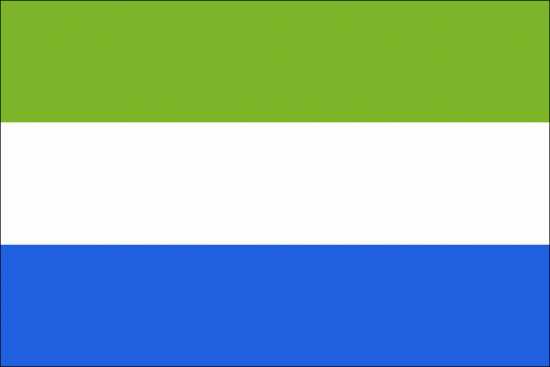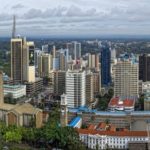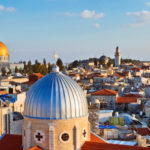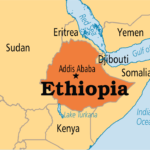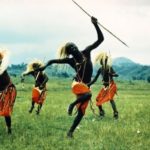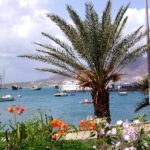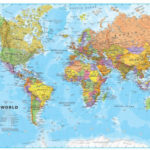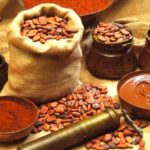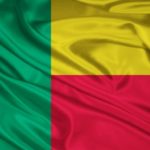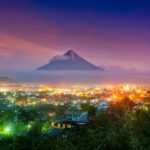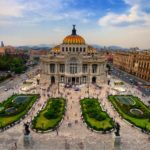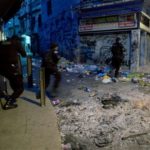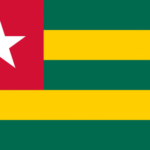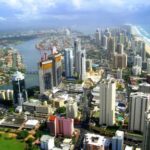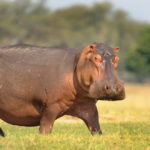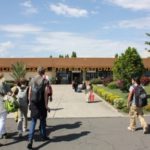Accra
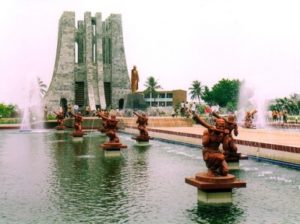 In the west of Africa on the coast of the Gulf of Guinea is located the amazing country of Ghana. The main city, which is Accra, the capital of Ghana and at the same time the center of the district.
In the west of Africa on the coast of the Gulf of Guinea is located the amazing country of Ghana. The main city, which is Accra, the capital of Ghana and at the same time the center of the district.
Getting here for the first time, you feel like an exhibition of the preaching of Christianity. There is no such thing in Accra, not only in Africa, but in no other country in the world. Even in the Vatican you will not see such an abundance of religious attributes.
It seems that everything here is connected with missionary activity.
In Accra, almost any shop or shop has signs of religious significance. Here, even many companies and trade establishments bear names connected with religion.
For example, you can see a cafe with the name “God is great” or an advertisement for a commercial enterprise “Nothing but Christ” and even in front of the entrance to a small office for making seals and stamps, the sign “God is with us” hangs.
Such a commitment to religion in Ghana has perhaps become a peculiar history of this country. Due to its convenient geographical position, the Gulf of Guinea attracted Europeans at the beginning of the advent of navigation. There are historical data that in 1471 the Portuguese were here.
And in 1482 Elmina was built, the first European fortress on the shores of Africa. This impressive kind of fortress and became the main trading post, where the Portuguese began their trade, or rather the exchange of goods. True, the exchange was far from equal. For their cheap handicraft products: dishes, fabrics, weapons, and so on. enterprising Portuguese and Spanish merchants took pure gold, silver, precious stones and slaves. Christopher Columbus also visited Elmin before he left to discover America.
The exceptionally lucrative deals of the Portuguese led to the fact that soon other European countries began to appear on the Gold Coast of Ghana, as a result of which the Portuguese monopoly was broken. The Dutch, the British, the French, the Swedes, the Danes and even the Prussians wanted to snatch their share in West African trade. They also began to build fortresses here, to bring soldiers, artisans and personnel to Africa, leaving their ships under the protection of the forts. Heavy same guns defended valuable goods. Very soon the entire coast was stuck with more than six dozen bastions of different nationalities.
The struggle of competitors for the Gold Coast looked tough, tense and very expensive. With the help of exclusive contracts with local territorial tribal leaders, who handed out “rental permits” and also profited from trade, European countries provided their “strongholds”. Fabrics, weapons, fake glass pearls and utensils from Europe accumulated in huge warehouses, and in cramped dungeons they expected live goods from the African hinterland to be loaded onto ships. Only in one of the fortresses – Cape Coast – there was a place to accommodate 1,000 slaves. No one knows the exact figures, but historians suggest that from the coastal forts of modern Accra, over the seas and oceans, Europeans sent over 2,000,000 black Africans into slavery.
Today, these fortresses have darkened and weathered, under the influence of monsoons and they are threatened with decline. But they still allow us to imagine how lucrative and profitable the transactions carried out in this part of Africa were. European fortresses with barbs and cannons between huts of corrugated steel sheet along the many kilometers of fabulous beaches of Ghana. These stone witnesses of the trade exchange between Europe and West Africa, which lasted for more than 500 years, look like alien inclusions. One of these is the castle Kristianborg, local name – Osu, founded by the Danes in the XVII century. The Kristianborg castle passed from hand to hand many times, fighting for the possession of these places, by the colonialists. At one time in this castle was the residence of the English governor. And in 1957, this castle became the residence of Kwame Nkrumah, the first national leader of Ghana. Osu Castle and now is the seat of the Government of Ghana.
Modern Ghana is a rapidly developing country. The capital of Ghana is Accra. It is located on the plain near the Gulf of Guinea. It is the main political, financial, commercial, industrial and cultural center of Ghana. This is where motorways and railways begin, which continue throughout Africa. There are various enterprises of textile, food, lumber, metalworking industries. The production of silver and gold products is developed. Accra has Africa’s largest diamond and cocoa markets.
Since ancient times, the seaport of Accra, which handles cargo on the roads, plays a huge role in the country’s budget. To increase the volume of cargo handling, a more modern port was built in Tema.
Although most of the population has a fairly low income, in Ghana the tourism business is increasing from year to year. New hotels of various categories for every taste are already open in Accra. There are modern 4 * hotels with swimming pools and with SPA services.
